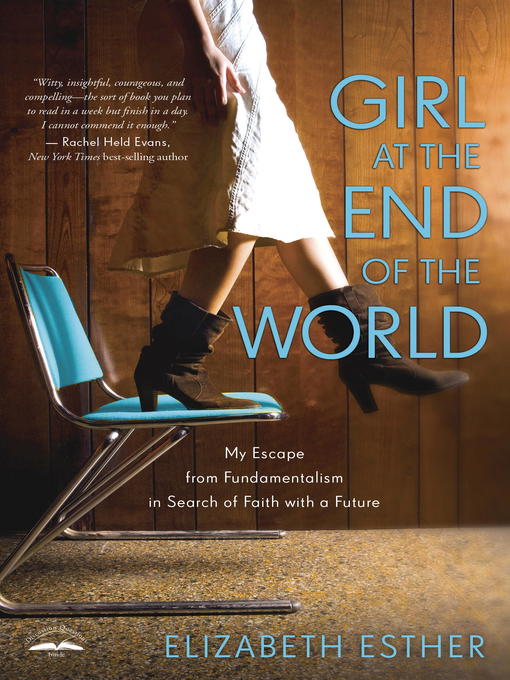Verily, verily I say unto thee, none of these highly specialized skills ever got me a job, but at least I’m all set for the end of the world. Selah.
A story of mind control, the Apocalypse, and modest attire.
Elizabeth Esther grew up in love with Jesus but in fear of daily spankings (to “break her will”). Trained in her family-run church to confess sins real and imagined, she knew her parents loved her and God probably hated her. Not until she was grown and married did she find the courage to attempt the unthinkable. To leave.
In her memoir, readers will recognize questions every believer faces: When is spiritual zeal a gift, and when is it a trap? What happens when a pastor holds unchecked sway over his followers? And how can we leave behind the harm inflicted in the name of God without losing God in the process?
By turns hilarious and heartbreaking, Girl at the End of the World is a story of the lingering effects of spiritual abuse and the growing hope that God can still be good when His people fail.
Includes reading group discussion guide and interview with the author


